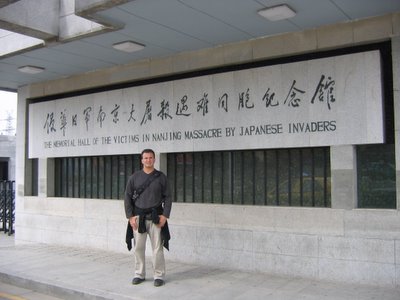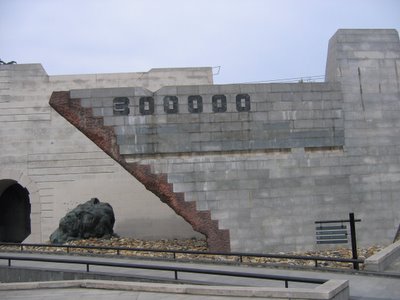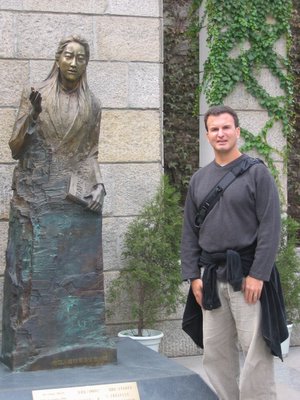
On Saturday, OCT 22nd, we traveled to Nanjing. A 3-hr train from Shanghai.
Having served as the capital of ten dynasties in ancient China, its splendour has remained and even enlarged with an extended population up to 600,000 when the government of the Republic of China set up its capital there in 1927. However, an outrageous and well-prepared war of aggression was started by Japan on Sep 13, 1931. Receiving no resistance from the government of the Republic of China, the troops of the Japanese aggressor occupied the three provinces of northeast China within a period of five months. Marching southwards, they launched all-out offensives on Shanghai and Nanjing.
On Dec 13, 1937, the Japanese army occupied Nanjing and during the following six weeks bore witness to the inhumane disgrace and bloody massacre exerted on the city. No less than 300,000 innocent civilians and unarmed Chinese soldiers were brutally slaughtered in mass and individual beheadings, burying alive, burning, and killing races. More than 20,000 women were raped and many were then killed. A third of the architectures together with their contents were damaged by fire and countless shops, stores and residences were looted and sacked. Corpses were seen floating on rivers and littered the streets and lanes. Whether they were children or the aged, from residents to nuns, few could escape from the savage atrocity.
Beth and I visited The Memorial Hall, a dedication to the Victims in the Nanjing Massacre, which was built by the Nanjing Municipal Government in 1985.
For the history of the Nanjing Massacre, see:
http://humanum.arts.cuhk.edu.hk/NanjingMassacre/NM.html


Several years ago, I read a book on the Nanjing Massacre written by Iris Cheng. This book, the best selling The Rape of Nanking (1997), documents the Nanking Massacre of Chinese by forces of the Imperial Japanese Army during the Second Sino-Japanese War, and includes interviews with victims. The work is best known for its focus on oral history, and was the first popular English language work to deal exclusively on the atrocity itself. It was a New York Times Bestseller and remained on the list for months. It won praise particularly for the accounts of the massacre and atrocities, including mass rape. I recommend this book. For more info see:
http://http://en.wikipedia.org/wiki/Iris_Chang

Iris Chang
